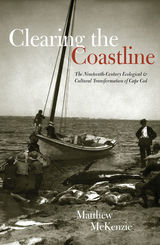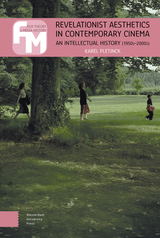
The seventh century was a period of radical transformation in the Balkans in terms of political, social, and economic history. The decline in Byzantine power led to the collapse of ancient urban civilization, the arrival of new populations from eastern Europe and the steppes, and, subsequently, the establishment of new political structures and modes of economic relations. Given that the written sources provide relatively little information about these events, archaeology is required to fill in the gaps and improve our knowledge and understanding of the socio-cultural and ethnic transitions that took place. New developments in archaeology in the Balkans have brought an enormous amount of information to light. The book’s eight contributors present research from different parts of the region, offering valuable new insights into the history, culture, and economy of the early medieval Balkans.


The nineteenth century began with reverence for nature and ended with the apotheosis of art. In this wide-ranging excursion through the literature, visual arts, and natural sciences of the era from Wordsworth to Wilde, Carl Woodring traces shifting ideas and attitudes concerning nature, art, and the relations between the two.
The veneration of nature as aesthetic model and ethical norm was gradually eroded not least by the study of biology, which revealed organic nature to be wasteful and murderous. Darwin’s work verified the growing perception of nature as amoral by stressing the role of chance in natural selection, a further blow to trust in natural law. Once nature was not worth imitating, art by the century’s close could be an end to itself, free of responsibility to the natural.
The author examines individual works by Romantic and Victorian poets; narrative prose from James Hogg and Mary Shelley to Conrad, James, and Stevenson; painters from Wilkie through the Pre-Raphaelites to Whistler—all within such general contexts as the picturesque, the sublime, natural theology, romantic irony, romantic Hellenism, realism, photography, aestheticism, arts and crafts, art nouveau, and decadence. Although Woodring focuses on events, movements, and creative minds in England, he also draws upon a range of seminal figures from the Continent and the United States: Alexander von Humboldt, Delacroix, Thomas Cole, and Hawthorne are prominent examples. Nature into Art will fascinate scholars and amateurs of movements in literature, art, science, and cultural history in the Western world after 1780.
READERS
Browse our collection.
PUBLISHERS
See BiblioVault's publisher services.
STUDENT SERVICES
Files for college accessibility offices.
UChicago Accessibility Resources
home | accessibility | search | about | contact us
BiblioVault ® 2001 - 2025
The University of Chicago Press









